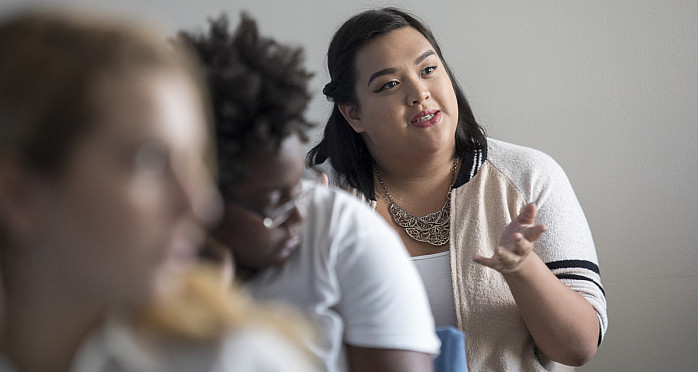First Year Learning Communities

First-Year Learning Community Details
-
Strongly encouraged for first-year students in BA/BS degree programs in the School of Liberal Arts and Sciences and the Theatre and Performance BA program.
Exception: First-Year Biology majors will be placed in BIO 1880/Biology Freshman Seminar and Global Scholars will be placed in EDG2010/Global Scholars Seminar.
- Open to both residential and commuter students.
- Taught by full-time faculty or faculty-in-residence.
- Each FYLC has assigned peer mentors who support first-year students’ transition to the college experience.
Learning Outcomes
- Foster academic success
- Discover and connect with Purchase College
- Promote personal development, wellbeing, and social responsibility
- Develop critical thinking and reasoning skills
Topics and Faculty
Choose a First-Year Learning Community of your choice (up to three options) during the registration process.
You will be placed in a FYLC on a first-come, first-served basis. If your first choice is full, you will be assigned another seminar based on availability.